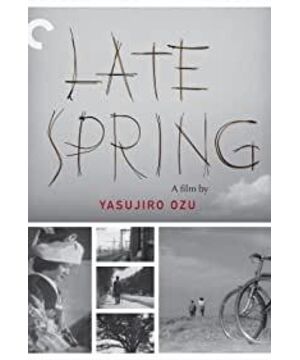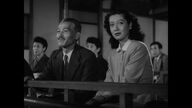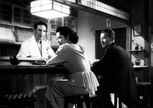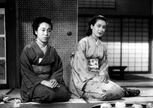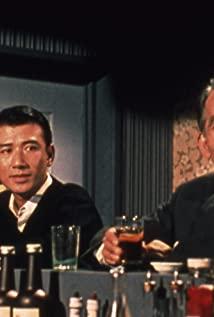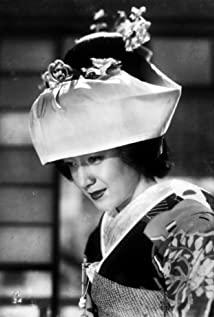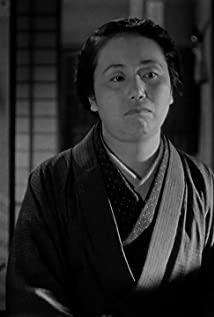The following is a brief record of some of the things I noticed and thought of when I first watched this movie, for study notes.
There are a lot of empty shots, and a group of empty shots are used to edit together. Such a technique may make the emotion expressed more delicate and accurate, but in most cases it will drag the rhythm down. Use it with caution in contemporary films, and ask yourself why you use it. I personally think that Mr. Yasujiro Ozu's use is still too casual - for example, the sea mirror at the end of the film I personally think it is unnecessary.
In addition, the relationship between this empty footage and the music is very close. Ozu Yasujiro's empty mirror and soundtrack seem not to be closely combined. In fact, most film masters may not be able to use music like a blade - the same blade that forms the same blade with the plot and picture - to cut into the hearts of the audience.
The structure and rhythm of the final film are formed by the script, the live director, and the editing. The big structure of the film is very traditional in rhythm - it provokes small climaxes and changes in the story at two golden ratio points of more than thirty minutes and more than sixty minutes (the full length of the film is 107 minutes). I wonder if this was designed by Mr. Ozu from the beginning of the script? I don't know if the editing of this film was also done by Mr. Ozu himself?
About 57'30" Noriko's jumping close-up scene in the scene where Yukiko and her father watched Noh (I don't know if it is, I don't know much about traditional Japanese culture) performances, if I were the director, I would have lost it In fact, this lens plays a very important role in the editing of the film, and the expression is very rational and powerful. Therefore, the design of the lens is still derived from the deep excavation of the play.
Around 78', the aunt went to Kiko's house and went upstairs to chase after Kiko's several questions and turns in the hallway and room, an example of performance scheduling - thus making a dry scene in the script come to life , natural, full, and accurate.
80' In the scene of a question-and-answer dialogue between Noriko and her father, when Noriko answered her father, there was no frontal close-up, but a side-to-back close-up - this is very good, very dramatic, and very "feeling". If I were the director, I would have taken a close-up shot of Noriko in the foreground with her father in the background. This is all the product of working without a brain and not understanding the script - such a brain is only suitable for shooting licensed products and the main theme! If I don't change it, I won't be able to shoot for the rest of my life!
At about 103', Qiuzi's words "must fall after the sixth cup" and her performance in which she was a little crazy and high suddenly kissed the professor was really well designed! Complement each other! Ingenious!
Finally, the line in Mr. Ozu's "Late Spring" "In the early stage of marriage is not necessarily happy. It is wrong to expect happiness to come suddenly... The happiness of marriage is established by two people." I wrote down this line . I think it will be a great inspiration and help for me who may be getting married.
Thank you Mr. Yasujiro Ozu.
View more about Late Spring reviews


